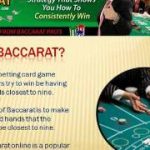Poker Strategy Info And Source:
Paul Phua’s followers sometimes ask his advice on poker strategy. Watch this video to discover Paul Phua’s answers on everything from pocket pairs and suited connectors to bankroll size.
Where do you get your advice on poker from?
Paul Phua: Well l can tell you, over the course of my poker career – it’s eight years now, you know – nobody really gave me advice on staying calm, or not tilting. They know l might be better than them in that department! But l do get a lot of tips, l learn a lot from asking players about certain hands. And with a few – one or two – closer ones, over drinks sometimes we would talk about poker strategy in our game.
Are there any poker videos you would recommend?
Paul Phua: The one that is very fascinating is the WSOP Main Event, you know? You can learn a lot from watching the pros play those hands. Sometimes l watch it and, say, “Oh yeah, l have encountered a situation like this before, and l played that hand badly, l should have played it this way!” Also, you know, you have videos on cash games on YouTube, on certain channels or on certain poker sites, which are very useful, like ‘Poker After Dark’ in the US. I myself find it very helpful. It helps with my game, a lot.
And now some questions asked by your followers. How do you play small pocket pairs?
Paul Phua: I would not give a certain set of patterns to play that style of hands, you know. Generally people go set mining with a small pair, but sometimes if you are on the button and the small and big blind are amateur players who you think you are superior to, you can raise with a low small pair, too. Even in the cut off. It all comes back, for me, it all comes back to who am l playing against. If I play against a pro l will not raise pocket fives in this spot. But if l play against an amateur player l might raise with pocket fives in that spot.
Under the gun with medium suited connectors, what do you do?
Paul Phua: l would say 99% of the time it’s either raise or fold for me. But l would go… most of the time l would raise, l would open with that hand. Also it depends how many handed game it is. Let’s say it is a 10-handed game, a nine-handed game, it’s all right to fold 8-9 suited under the gun, sometimes.
So would you ever limp UTG with medium suited connectors?
Paul Phua: You see, nowadays, the modern game is such that you don’t find many people limping in early position, you know, it’s either fold or raise. The game has evolved to that stage, and l think it’s right, you know. If you limp in and then there’s two callers, it’s like 90% of the time someone behind will make a big raise, and you cannot see the flop. Which is like wasting money.
Is there any way to tell from a raise whether a player has AK or a big pair?
Paul Phua: If you play against a pro, never try to guess their hand by their stack size. They mix it up so well. But if you’re playing against amateur players, usually their stack size will give you a hint of what their cards are, you know. Like for example, Ace-King they raise 5X of big blind, or of someone else’s raise. With Aces they will raise 3X of big blind or someone else’s bet size. And if he has Kings, he tends to raise 4X. If he has Aces he tends to raise 2½ X or 3X. In those situations against amateur players, you know, you kind of get a guess of what their card is by their bet size.
Should you play more tightly on a limited bankroll?
Paul Phua: If you are good, you know, and if you have a small bankroll, l think it’s wise to ask people to stake you, so you have a bigger bankroll. Because with a small bankroll it’s very hard to play the game. In certain situations you are pressured, where you can’t play your normal game: you should call but you fold it, because you have not much bankroll left. My advice is try to get a sizeable bankroll for certain games. Then, when you have the amount of bankroll you feel comfortable playing – let’s say three buy-ins instead of two, all right, and 10 buy-ins instead of five for a short-deck game, you know. I think to be comfortable in the game is very important, and that is when you have a nice bankroll.
And if you are amateur players and the money is very important to you, l would advise not to play the game anymore, until you have learned the game from some pros, to a certain level where the pros say, “Ah, now l think you can beat most games!” That’s my advice.
For more videos with me subscribe to my channel and watch:
Source: YouTube








You don't raise Co with 55 v regs? lies lol.
But still enoying these videos, i have been to your site though and see nothing for sale. What do you plan to do long term with Paul Phau school of poker.
Also, seems like your really enjoying making these and try to be very open and honest, so that's really nice too
love this guy
Why the subs? His English is more than decent.
Poker video recommendations – what a fish!